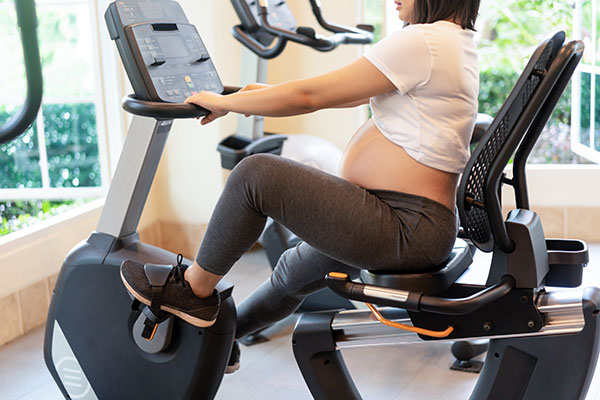Pregnancy is a transformative period in a woman’s life, marked by physical changes and a heightened sense of anticipation. With these changes come questions about the do’s and don’ts, especially concerning physical activity. Thankfully, the approach to exercising during pregnancy has evolved, with greater emphasis on its importance for both mother and baby.
At North Pointe OB/GYN in Cumming, we stay updated with the latest guidelines and recommendations to guide expecting mothers through a safe and healthy journey.
Understanding the Benefits
Exercise during pregnancy isn’t just about staying in shape; it’s about holistic health. Regular physical activity can:
- Alleviate common pregnancy complaints like fatigue and back pain.
- Enhance posture, strength, and endurance, which can assist during labor.
- Reduce the risk of gestational diabetes and pregnancy-induced hypertension.
- Improve mental well-being, reducing anxiety and mood swings.
- Promote better sleep and increase energy levels.
- Aid in faster recovery post childbirth.
Latest Recommendations
While individual recommendations might vary based on your health and any potential complications, the general guidelines suggest:
- Frequency: Aim for moderate-intensity exercise on most, if not all, days of the week.
- Type: Cardio exercises like brisk walking, stationary cycling, and swimming are excellent choices. Strength training exercises, in moderation, can also be beneficial, focusing on major muscle groups.
- Duration: For those who were active before pregnancy, 30 minutes of moderate exercise a day is ideal. If you’re new to exercise, start slowly and gradually increase your activity.
- Hydration: Drink water before, during, and after exercise to prevent dehydration, which can lead to overheating and even contractions.
- Monitoring Intensity: The ‘talk test’ is a simple way to measure exercise intensity. If you can converse while working out, you’re likely at a good pace.
Precautions and Contraindications
While exercise is beneficial, there are situations where it may be risky:
- If you have conditions like heart or lung disease, preeclampsia, or placental complications, consult with your healthcare provider about suitable activities.
- Avoid exercises that pose a risk of falling or trauma to the abdomen.
- Steer clear of activities that involve lying flat on your back after the first trimester, as this can reduce blood flow to the baby.
- Always listen to your body. If you feel any pain, dizziness, or shortness of breath, stop the activity immediately and consult your healthcare provider.
A Personalized Approach
Each pregnancy is unique, and what works for one individual might not work for another. At North Pointe OB/GYN, we believe in personalizing exercise recommendations based on an individual’s medical history, current health status, and any potential pregnancy complications.
The modern perspective on pregnancy and exercise is clear: for many women, staying active is not just safe but also beneficial. It’s about balancing well-being and safety, ensuring that both mother and baby thrive.
For any specific questions or concerns regarding exercise during pregnancy, always reach out to a trusted healthcare provider. At North Pointe OB/GYN, we’re here to guide and support you through every stage of your pregnancy journey.




